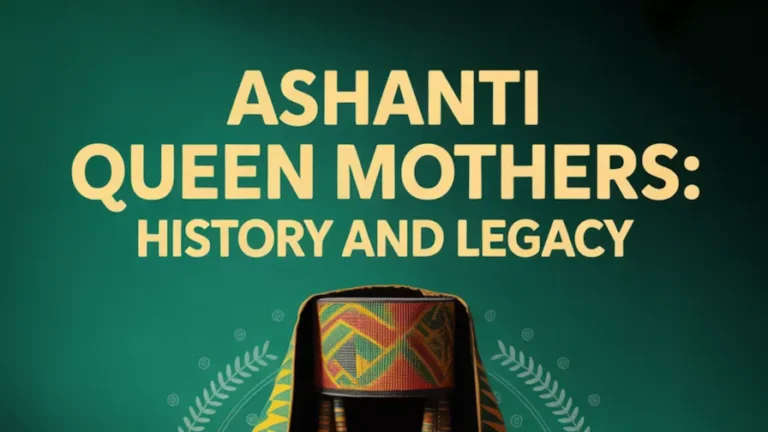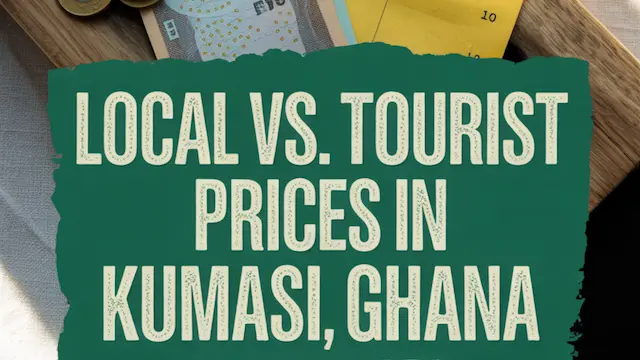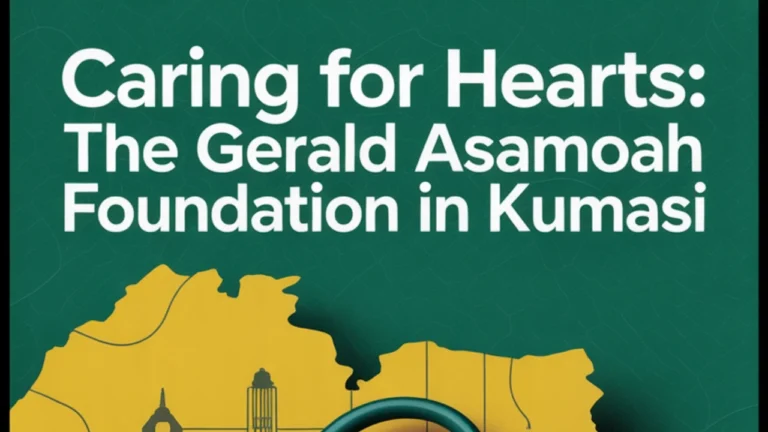Ghana Card: Key Benefits, Simple Application, and Costs in Kumasi and the Ashanti Region

THIS POST MAY CONTAIN AFFILIATE LINKS. THIS MEANS WE MAY RECEIVE A COMMISSION FROM QUALIFYING PURCHASES YOU MAKE THROUGH OUR LINKS. KINDLY READ OURDISCLOSURE NOTICE FOR MORE INFORMATION.
Access to essentials like banking, healthcare, and travel in Kumasi hinges on having the correct ID.
For residents and visitors in the Ashanti Region, the Ghana Card is at the forefront. This card is not just a piece of plastic.
The Ghana Card connects you to daily life and government services in Kumasi, and it may be requested for things like city permits or community registrations linked to significant events, including festivals such as Akwasidae.
Yet many people born and raised in Kumasi, as well as new arrivals, still find the process confusing. What documents do you need? How much will it cost? Where can you apply if you live in or visit Kumasi?
This post gives straightforward answers to questions about what the Ghana Card is, who needs it, how to apply, and the costs for citizens, foreigners, and non-citizens.
Everything is geared toward helping you confidently get your national ID in Ghana and enjoy life in the Ashanti Region.

Struggling to Keep Track of All Your Kumasi Adventures? No worries!
With so much to see, do, and learn in Kumasi, it’s easy for the details to get lost. Want to make the most of your explorations? Then you need this FREE Kumasi Journal Set!
It’s perfect for recording your favorite spots, and cultural experiences, and even learning key Twi words and phrases to deepen your connection to Kumasi. Whether you’re a local or a visitor, this journal makes every moment count.
Key Facts About the Ghana Card
The Ghana Card is the country’s official national identity card. Issued by the National Identification Authority (NIA), it was launched in 2017 as a reliable way of proving one’s identity for banking, voting, mobile SIM registration, and numerous other day-to-day purposes.
Some key facts about the Ghana Card:
- Serves as Ghana’s primary national ID (replacing the Voter ID for many uses)
- Required for many public services, including social security, health insurance, and banking
- Stores biometric data: fingerprints, a digital photograph, a signature, and personal information
- An embedded chip allows secure transactions and verification at financial institutions
- Recognized for travel within the Economic Community of West African States (ECOWAS)
- Eligibility: Ghanaians aged 15+, naturalized citizens, some long-term residents, and non-citizens
For Kumasi and the larger Ashanti Region, the Ghana Card makes life smoother.
Residents need it to access public services, register SIM cards, or open bank accounts.
For foreign residents, permits are required for renting property or setting up businesses. Short-term visitors, however, rely on passports rather than the Ghana Card.
What data is stored? The chip stores personal details, including name, date of birth, nationality, sex, and digital biometric records. It links to key services, providing a modern way to verify identity without lengthy paperwork.
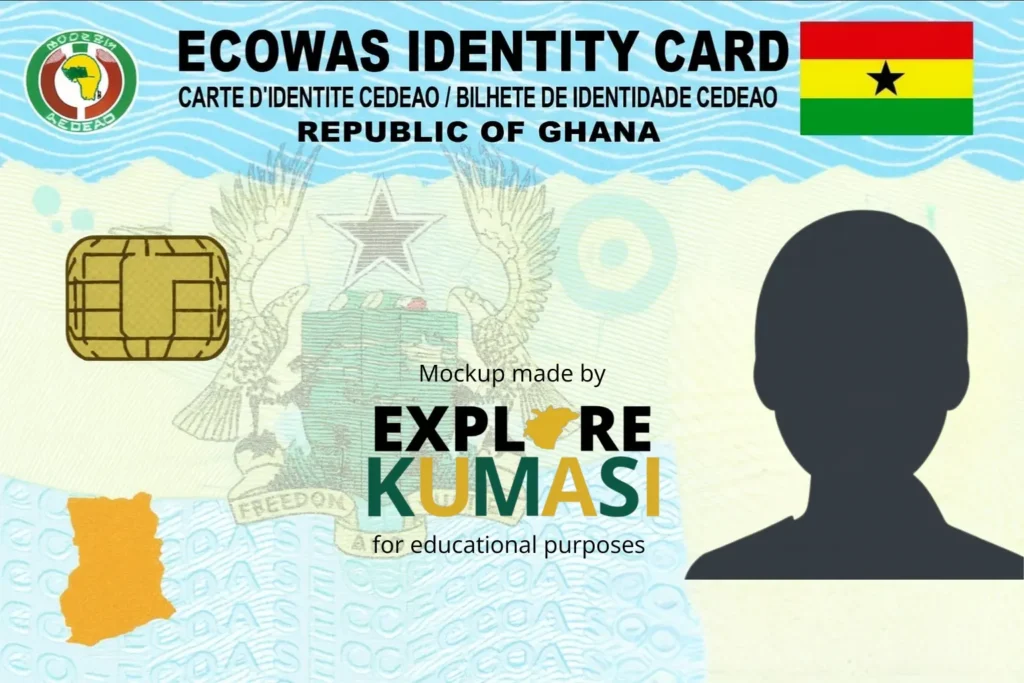
Eligibility and Requirements
Ghanaian Citizens:
- Born in Ghana or naturalized citizens
- Aged 15 years and older
- Must present a birth certificate or an existing passport
- Valid proof of residency (utility bill, tenancy agreement, digital address, or introduction letter)
Non-Citizens & Foreigners:
- Holders of valid Ghana residence or work permits
- Passport from the original country
- Proof of visa or immigration status
- Proof of current address in Kumasi or the Ashanti Region
Special Notes:
- Minors under 15 can obtain a card, but they must provide parental or guardian consent, as well as proof of birth.
- The process is essential for expats or those planning to live, work, or invest long-term in Kumasi, especially as more day-to-day services require it.
Benefits for Residents and Visitors
The Ghana Card opens numerous doors. Here’s how it helps people in Kumasi and the Ashanti Region:
- Banking: Opens accounts, makes mobile money transfers, and handles loans
- Healthcare: Enrollment at hospitals and clinics is easier with a valid ID
- SIM Card Registration: Essential for safe phone use and compliance
- Cultural Participation: Register for city permits or join community associations
- Travel: Move more freely across Ghana (and to other ECOWAS countries if eligible)
- Markets and Business: Register as a trader or access business support programs
- Long-Term Residency: For non-citizens and foreigners, it allows you to access utilities, rent property, or send children to school
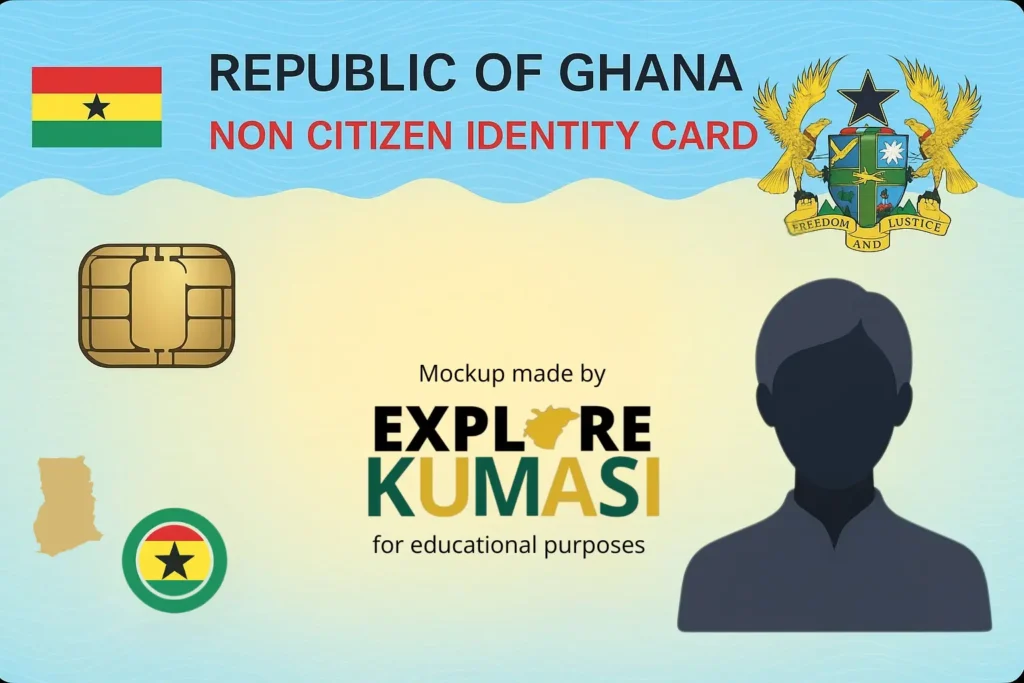
How to Apply for the Ghana Card
If you want to apply for a Ghana Card, you can find several centers in Kumasi that are set up for both residents and new arrivals.
The application combines online registration with an in-person visit for biometric verification.
Step-by-Step Guide:
- Gather documents: Bring originals and clean copies (see requirements above).
- Book an appointment: Visit the official NIA website or app to begin the registration process. Pick a Kumasi NIA center.
- Fill out the form: Use the online portal or complete paper forms on-site.
- Go for biometrics: Attend your booked appointment. Staff will take fingerprints, a digital photo, and a signature.
- Please wait for processing: Citizens typically receive their cards within 2-4 weeks. Non-citizens may have a longer wait.
- Pick up your Ghana Card: Bring your receipt or tracking slip, plus a valid photo ID.
Where to Find NIA Offices in Kumasi
If you are in Kumasi or anywhere in the Ashanti Region, you can visit the following NIA offices for Ghana Card services:
- Ashanti Regional Office – Asokwa, Kumasi
- Bek-Egg Hotel Road Office – Kumasi
These offices handle first-time registration, renewals, replacements, and updates. The NIA also operates district offices in areas such as Bantama, Manhyia, and Ejisu.
👉🏿 Always confirm opening hours and current operations on the official NIA website or their verified social media pages before visiting.
Application Steps for Citizens
- Complete the online registration form at the NIA portal.
- Bring required documents: birth certificate, valid photo ID, utility bill or digital address code.
- Go to your scheduled appointment at a Kumasi NIA center.
- Staff will capture fingerprints, a digital photo, and a signature.
- Processing usually takes 2 to 4 weeks.
- Collect in person with your receipt and ID.
Application for Non-Citizens and Foreigners
If you are a foreign resident in Ghana, you must register under the Foreigner Identification Management System (FIMS) program to obtain the Non-Citizen Ghana Card (NCGC).
- Steps:
- Submit a valid passport and proof of residency (utility bill, rental agreement, or employment letter).
- Present a valid visa or residence permit.
- Pay the required fee: first issuance is USD 120, and the annual renewal is USD 60 (both paid in cedi equivalent at the Bank of Ghana rate).
- Complete biometrics at an NIA office.
- Processing usually takes up to 6 weeks.
- Collect the card in person with a tracking slip or receipt.
Costs and Validity of the Ghana Card
| Applicant Type | First Issue Cost | Renewal | Replacement | Validity Period | Notes |
|---|---|---|---|---|---|
| Ghanaian Citizens (15+) | Free at district/regional NIA offices | GHS 60 (includes PIN cost) | GHS 125 (lost/stolen/damaged) | 10 years | Must show a valid visa or residence permit; issued under the FIMS system |
| Ghanaian Citizens (Premium Centres) | GHS 310 (first issue, renewal, or updates) | Same fee for later services | Same fee for replacement | 10 years | Optional “fast-track” service |
| Non-Citizen Residents (with residence/work permit) | USD 120 (cedi equivalent) | USD 60 annually (cedi equivalent) | USD 60 (cedi equivalent) | 1 year | Issued as the Non-Citizen Ghana Card (NCGC) |
| Foreign Nationals / Visitors | USD 120 (cedi equivalent) | USD 60 annually (cedi equivalent) | USD 60 (cedi equivalent) | 1 year | Must show a valid visa or residence permit issued under the FIMS system |
Payment: At NIA centres. District offices accept cash or mobile money. Premium Centres use cashless payments only.
Waivers: Some groups (pensioners, students, persons with disabilities) may qualify for partial or complete waivers at standard centres.
Premium Centres in Kumasi and Accra
Not everyone wants to wait in line at a busy district office. For those who prefer a quicker and more comfortable process, the NIA operates Premium Centres in major cities, such as Kumasi and Accra.
At a Premium Centre, you pay GHS 310 for first-time registration, renewal, or updating records. The card itself is the same, but the fee covers:
- Faster processing with scheduled appointments
- Smaller queues and shorter waiting times
- Air-conditioned, comfortable facilities
- Dedicated staff and personalized service
- Cashless payment systems (card or mobile money only)
Using a Premium Centre is optional. If you want to save costs, you can always register for free at a standard district or regional office.
Enjoying This Post? Keep Exploring With Us!
If this post connects with you, check out our store for fun and interactive ways to explore Kumasi, the Ashanti Kingdom, and the Ashanti Region. From history and culture to beginner-friendly Twi language learning, we’ve created resources to help you learn, connect, and share.

The Ghana Card is more than an ID. It is your entry point into everyday life in Ghana.
From opening a bank account and booking local services to joining the festivities, this card keeps things moving smoothly.
You now know the key facts, including who is eligible for a card, what you will pay, and how to apply. Take the next step today to avoid missing out on the experiences that Kumasi has to offer.
Want more practical tips? Subscribe to the Explore Kumasi newsletter, download our free resources, or share your experience in the comments below.
AKWAABA!! IF THIS POST CAPTURED YOUR ATTENTION, KEEP EXPLORING KUMASI WITH US AT ExploreKumasi.com. Yɛdaase!
You’ll find cultural guides, historical insights, and travel resources to help you experience Kumasi and the Ashanti Region more deeply.
💬 Want to stay connected? Join our community on Facebook to share your thoughts and discoveries.
📌 Inspired by what you read? Pin an image to come back later or share with someone planning their own Kumasi journey.
Thank you for exploring with us.


